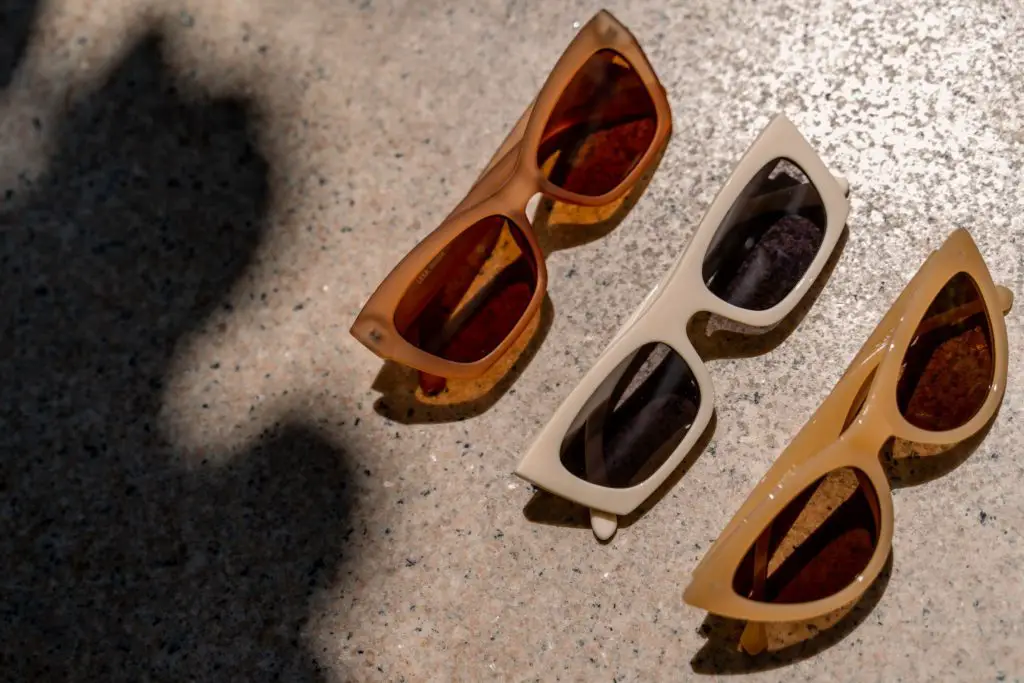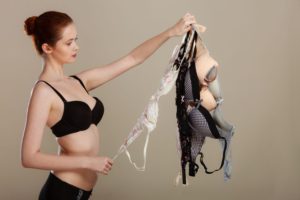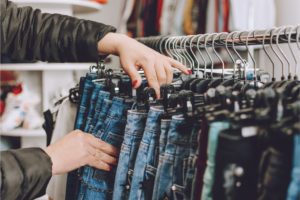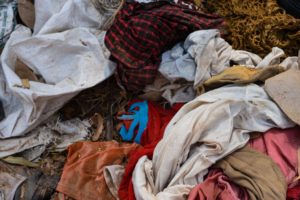9 Sustainable Sunglass Brands Worth Checking Out
- All Australian Owned

This post was last updated in 2022
Are you struggling to find sunglasses that are sustainably made? Not sure what to look out for? Don’t want to go digging through websites to find the information you need?
I have you covered.
Especially if you are after Australian brands that offer sustainable alternatives.
Australian-owned brands that offer sustainably made sunglasses include Good Citizen, Ozeano, Local Supply, Mari & Clay, Szade, Childe, Sticks and Sparrow, Grown and Le Specs.
Here’s a quick snapshot of these brands and what they have to offer:
| Brand | Price | Polarised | Frame Materials |
|---|---|---|---|
| Good Citizen | $100 - $129 | Yes | 100% recycled plastic bottles |
| Ozeano | $99 | Yes all | 100% M49 bio acetate |
| Local supply | $75 - $225 | Yes all | plant based resin and stainless steel |
| Mari & Clay | $199 | Yes all | 100% bio acetate |
| Szade | $80 - $100 | Yes | 100% recycled plastic sunglass frames |
| Childe | $390 | None found | 100% M49 bio acetate or 61% renewable sources |
| Sticks & Sparrow | $100 - $395 | None found | bio acetate and plant based (bamboo, cork and wood) |
| Grown | $130 - $351 | Yes all | 100% FSC certified wood |
| Le specs (Le Sustain) | $70 - $89 | Yes | 100% recycled or mixed virgin and recycled materials |
Below I provide a review of each of these brands, highlighting aspects that make these brands sustainable as well as information you will need to know as a consumers
You will find all this information in one place you don’t have to go searching through hundreds of pages online.
Some notes before getting into the review:
- All brands I looked at are Australian owned but there are some really good brands on this list so check them out even if you are not Australian.
- Where it is noted that the glasses are manufactured overseas, it means outside of Australia.
- All brands sold styles for men and women. The majority sold unisex, gender-nonspecific styles.
- The majority used lenses with 100% UV protection and complied with the Australian/New Zealand Standard AS/NZS 1067.1:2016, unless otherwise stated.
- All used polycarbonate lenses unless otherwise stated.
As covered in Sustainable Sunglasses – What to Look Out For, these are quite a few elements to consider to determine whether the product is sustainable or not.
Given there are so many factors involved, no one brand is better than another – it is up to you to choose. But at least here you have the information to make a choice.
- Australian-owned and Australian made
- Frames made from 100% recycled plastic bottles
- Hinges are made from the same recycled material
- Modular design so you can customise and repair easily
- Repair service offered
- Takeback service offered
- Basic designs to suit most people
- Packaging made from recycled materials and is recyclable
- Free shipping over $173
- Postage for returned items is covered
- Virtual try-on available on some model
- Carbon-neutral operations
- 4.8 out of 5 based on 21 Facebook reviews
- Limited design range
- Not all glasses are available for virtual try-on
- Frames made from 100% M49 bio acetate
- Top-of-the-range, robust, Italian-made double wire core hinge, complete with Teflon-coated screws to create a hinging system that will last
- Takeback service offered with a 25% voucher for new purchases
- Basic designs to suit most people
- Virtual try-on available
- Packaging made from recycled materials and is compostable
- Certified B Corp
- 5 out of 5 based on 7 Facebook reviews
- Manufactured overseas
- No repair service for frames
- No free shipping
- Return shipping at the customer’s expense
- Frames made from plant-based resin and/or stainless steel
- Repair service offered
- Takeback service offered with a $30 discount voucher
- A variety of styles are available
- Free shipping over $75
- 4.2 out of 5 based on 27 Facebook reviews, most customers are happy with their purchase (there was one product review online that complained about the glasses not lasting more than one year)
- Further information about the plant-based resin is not provided (who produces it and how). It is noted: “Our signature plant-based resin is derived from castor bean plants grown in semi-arid areas, not competing with food crops for land. The resin is made in Switzerland in a facility that’s also powered by biofuels, resulting in 50% fewer carbon emissions than crude oil-based plastic.”
- It is not clear what packaging the products will come in.
- Cannot try out the glasses at home or online
- Return shipping at the customer’s expense
- Frames made from 100% bio acetate
- They use high-quality metal hinges that are riveted through the temples and frame fronts to ensure the sturdiest construction
- Lifetime warranty on craftmanship, covering manufacturing defects
- Repair service offered
- Takeback service offered with 25% off the next purchase
- Basic designs to suit most people
- Packaging made from recyclable materials
- Free shipping
- The suppliers of the bio acetate material are not clear. They only note it: “is derived from responsibly harvested cotton seed and wood pulp”.
- Cannot try out the glasses at home or online
- Return shipping at the customer’s expense
- No external reviews found
- Frames made from 100% recycled discarded sunglass frames
- They show what each component of their product is made from at https://szade.com.au/pages/process
- Wide range of trendy design options
- Free shipping in Australia
- Packaging is recycled and recyclable
- Postage for returned items is covered
- 4.4 out of 5 based on 39 on Trust Pilot
- Manufactured overseas, however, they are made near where the materials are sourced
- No repair service offered
- No takeback service is offered
- Very few basic designs
- Cannot try out the glasses at home or online
- A review online mentioned there is unnecessary packaging with the product
- Protection and coverage offered by the lens were not clear
- Frames made from 100% M49 bio acetate (Childe handmade range) or 61% renewable resources (Childe Wilde range)
- Lifetime guarantee on 100% bio acetate frames
- Recycled, recyclable or compostable packaging
- Wide range of design options (basic and latest trends)
- Free shipping
- Virtual try on
- The source for the 61% renewable frames is unknown
- Otherwise, manufactured overseas
- No repair service offered
- No takeback service offered
- Lens quality varies
- Return shipping at the customer’s expense
- No reviews found
- Frames made from 100% bio acetate and natural bamboo, wood and cork
- Recyclable or compostable packaging
- Wide range of design options (basic and latest trends)
- Ability to try on up to 4 sunglasses at home
- Manufactured overseas
- Minimal information about manufacturing partners
- No repair service offered
- No takeback service offered
- Return shipping at the customer’s expense
- No reviews found
- Frames made from 100% FSC-certified bamboo, zebrawood, ebony, Canadian redwood or maple
- Recyclable or compostable packaging
- Minimal information about manufacturing partners
- No repair service offered
- No takeback service offered
- No information on packaging given
- Limited designs
- Return shipping at the customer’s expense
- No ability to try on the sunglasses
- No reviews were found however, there are comments on Facebook about shipping issues
- 30% recycled PET, 70% PET
- 35% rice straw, 65% recycled plastic
- 23% meadow grass, 77% recycled plastic
- 100% recycled plastics
- 70% recycled acrylic, 30% PMMA
- Frames made from a variety of eco-friendly options
- Recycled packaging
- Free shipping for orders over $50
- Easy to find at major retailers of sunglass (such as Sunglass Hut)
- Wide range of design options (basic and latest trends)
- Virtual try-on available
- Affordable price point
- Sustainability is not core to their business model
- Some of the Le Sustain line uses virgin materials (not clear if they are from renewable sources)
- Minimal information about manufacturing partners
- No repair service offered
- No takeback service offered
- Return shipping at the customer’s expense
- Likely manufactured overseas
After more information? You may be interested in....
Don’t Throw Them Away – Practical Uses for Your Old Glasses – if you have old eyewear, don’t trash it! Explore this guide, which covers options to repair, reuse and recycle glasses.
Sustainable Sunglasses – Know What to Look Out For – learn about the different options available to make your sunglass purchase a sustainable one.
Sustainable Choices for Your Eyewear – Your Options Covered – for information on reusing old frames and lenses and where to get glasses second-hand.
Replacing New Lenses in Your Old Frames – Is it Worth it? – for further information about getting new lenses into your existing frames, in particular, how much this will cost
7 Sustainable Eyewear Brands Worth Checking Out – for a list of Australian brands making prescription glasses from sustainable materials.
Plant-Based Sunglasses – What Are They Made From Really? – read this if you want to know what “plant-based” sunglasses really mean and what makes them a sustainable option.
A Close Look At Bamboo Sunglasses – Sustainable or Not? – for a great overview of bamboo as a material source, allowing you to judge whether it is a sustainable option or not.
Recycled Metal Sunglasses – From Waste to Wearable – discover the unusual source materials used in recycled metal sunglasses and the studies that show they are a sustainable option.




